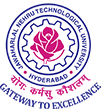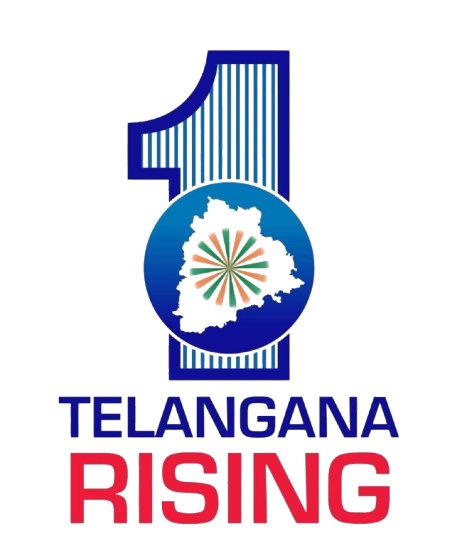|
|
Electrical and Electronics Engineering stream is providing quality laboratories to the B. Tech students to grasp more practical knowledge over the theory which will strengthen their practical life to compete with the present corporate world. This stream is offering the following laboratories.
 BASIC ELECTRICAL ENGINEERING LABORATORY BASIC ELECTRICAL ENGINEERING LABORATORY
|
The objective of Basic Electrical and Electronics Engineering laboratory is to learn the practical experience with operation and applications of electromechanical energy conversion equipment such as DC machines, 3-phase induction motors and alternators. It also aims to get the knowledge of the different circuitry equipment like verifying the laws of currents and voltages, finding the relation between the impedances and currents and also finding the resonance of a particular circuit and all fundamentals theories.
This laboratory can accommodate about 36 students per batch and 120 students per semester. It consists of fully equipped setup to carry out numerous fundamental experiments under Electrical Engineering. The experiments are designed to expose students to the practical executions of the fundamental theories of electrical engineering.
Outcomes:
Upon the completion of BEE practical course, the students will be able to:
-
Understand the operation and applications of electromechanical energy conversion devices
-
Understand identification and selection of various electrical components.
-
Understand how these devices are used in real time applications.
-
Learn how to measure the electrical quantities with different measuring devices like digital millimetres and CRO’s.
|
|
|
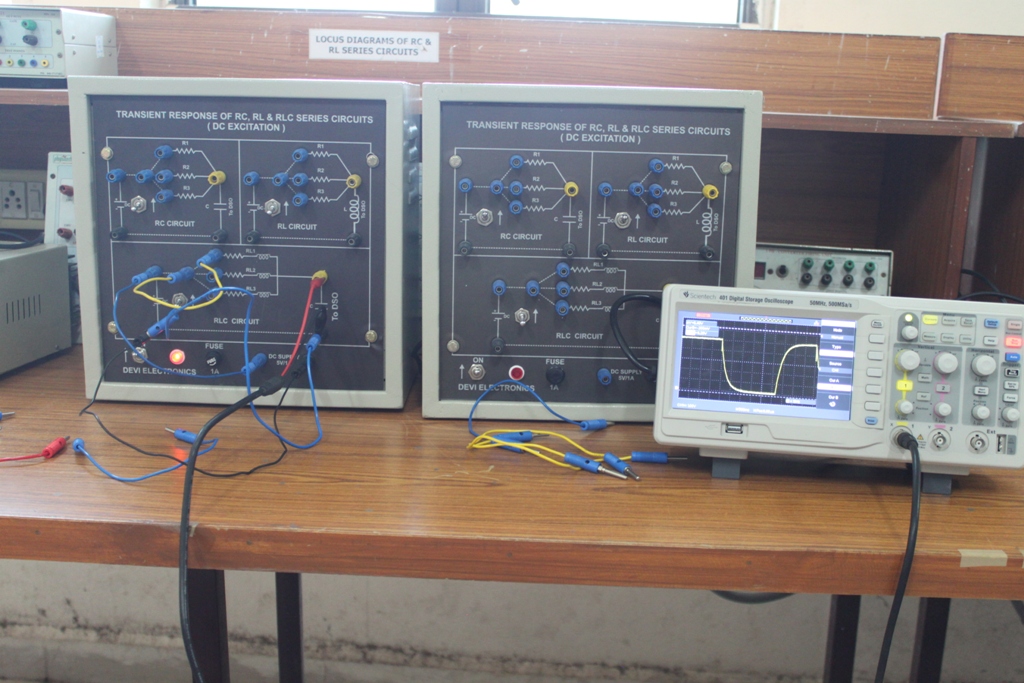 |
 ELECTRICAL MACHINES LABORATORY ELECTRICAL MACHINES LABORATORY
|
The significance of the Electrical Machines Laboratory is well-known in the various fields of engineering applications such as commercial, industrial, domestic and agricultural sectors etc.
This Electrical Machines Laboratory is the heart of core for EEE Branch and it deals about the DC machines and AC machines with its internal and external characteristics analysis. For an Electrical Engineer, it is mandatory to have the practical ideas about the Electrical Machines.
This Electrical Machines Laboratory is to expose the students to the concepts of DC machines, transformers, synchronous and asynchronous machines and analyze their performance. Also impart knowledge on construction and performance of salient and non – salient type synchronous generator, principle of operation and performance of synchronous motor, construction, principle of operation and performance of induction machines, starting and speed control of three-phase induction motors, construction, principle of operation and performance of single phase induction motors and special machines.
This laboratory is well equipped with the high power rating of electrical AC, DC machines and high power rating electrical ammeters, voltmeters and watt meters etc. and it can accommodate about 36 students per batch and 120 students per semester. Also makes construction towards final year project work in area of Electrical Machines and Drives.
Utilization:
This laboratory is utilized for conducting the following courses:
-
Electrical Machines Lab-I
-
Electrical Machines Lab-II
-
Electrical Machines Lab ( This lab course offered to CIVIL, CSE, MECHANICAL and MINING departments )
Outcomes:
After completion of this laboratory course, the student is able to
-
Analyze the characteristics of DC shunt, series and compound generators and calculate critical resistance and critical speed.
-
Examine load characteristics of DC shunt, series and compound motors and identify its maximum efficiency operating point.
-
Predetermine the equivalent circuit parameters of single phase transformer in two different methods and compare the results.
-
Convert the 3-phase to 2-phase by using Scott connection.
-
Determine the voltage regulation of three phase alternator in different methods and compare the results.
-
Explain the V and inverted V characteristics of three phase synchronous machine at different load conditions.
-
Determine and pre determine performance characteristics of three phase induction motor.
-
Determine and pre determine performance characteristics of single phase induction motor.
|
|
|
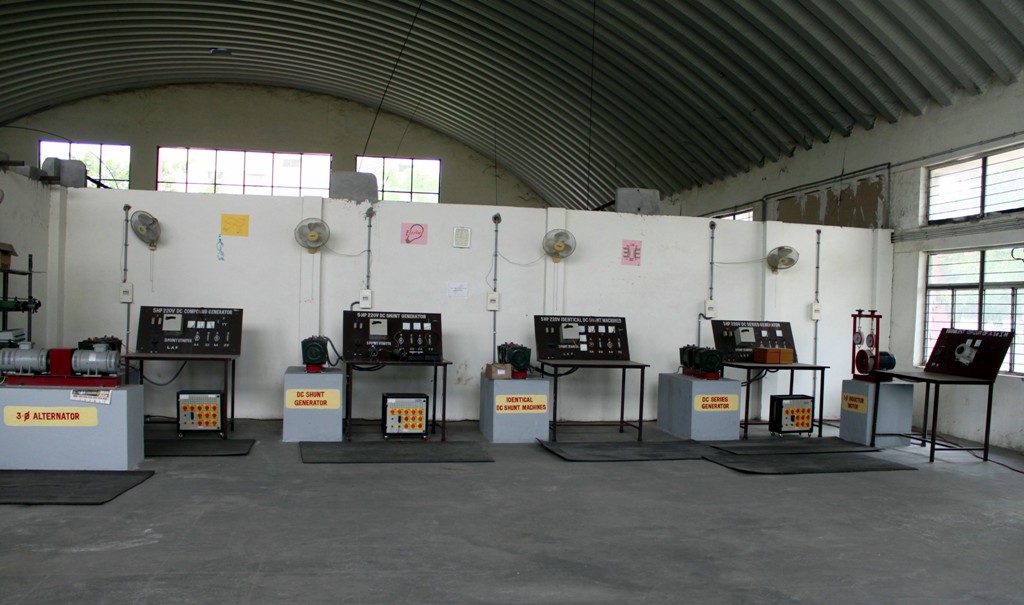 |
 ANALOG ELECTRONICS LABORATORY ANALOG ELECTRONICS LABORATORY
|
Analog Electronics, as the name suggests deals mainly with processing of Analog signals. The objective of this laboratory is to link the theoretical concepts of different analog electronics circuits with practical feasibility thereby giving them a scope to learn basic electronics circuits and their different electrical characteristics in a better way. It also aims to make the students well versed with basic electronic components such as diodes, BJTs and FETs and circuits
Outcomes:
At the end of this course, students will demonstrate the ability to
-
Know the characteristics, utilization of various components.
-
Understand the biasing techniques
-
Design and analyse various rectifiers, small signal amplifier circuits.
-
Design sinusoidal and non-sinusoidal oscillators.
-
A thorough understanding, functioning of OP-AMP, design OP-AMP based circuits with linear integrated circuits.
|
|
|
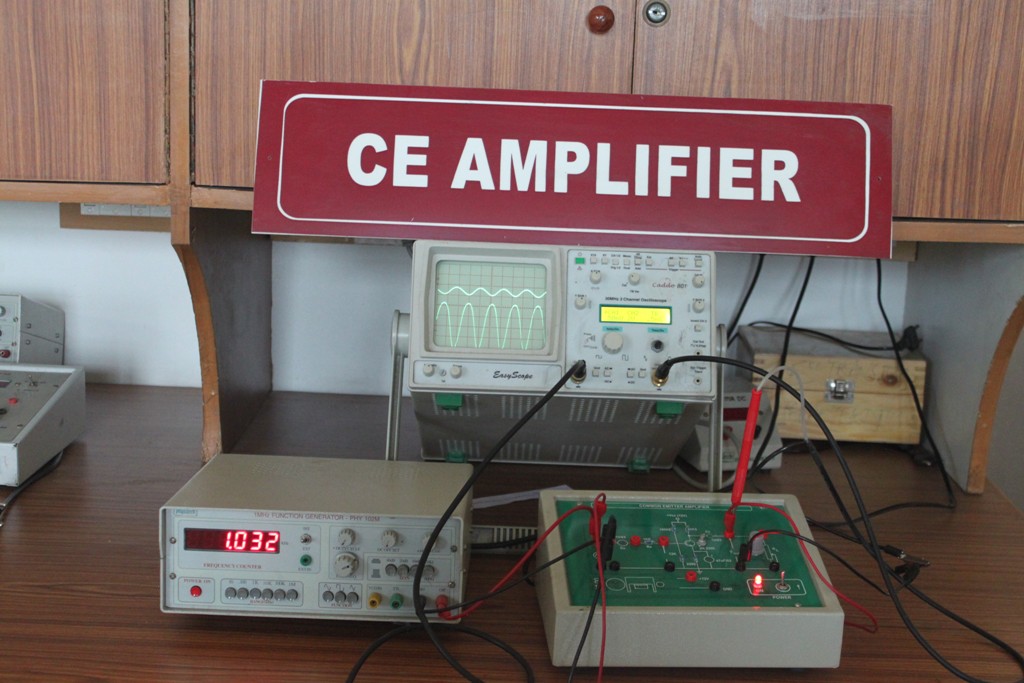 |
ELECTRICAL CIRCUITS LABORATORY
The objective of the electrical circuits lab is to expose the students to the electrical circuits and give them practical knowledge on various experiments. The purpose of lab is to design different electrical circuits by using various elements like resistors, inductors and capacitors.
The Electrical circuits lab will helps the students to gain practical skills on designing various electrical circuits with both AC and DC supply and also they will be trained as per the industrial requirements in designing various electrical circuits.
Outcomes:
Analyse complex DC and AC liner circuits.
-
Apply concepts of electrical circuits across engineering.
-
Evaluate response in a given network by using theorems.
CONTROL SYSTEMS LABORATORY
Control Systems is most essential laboratory is very useful to students in regular life where the controlling actions needed in the areas like Electrical & Electronics applications, Industrials, domestically applications, aeronautical, Navy, mechanical applications and energy controlling applications in generation plants etc.
This lab is used to get the knowledge about physical systems performance analysis in practically and helps to solve the problem by necessary changing elements in the electrical and electronics equipments based on relative mathematical equations solving. This laboratory helps to analyze the responses of the systems with time and frequency parameters. For better characteristics and stability, feedback controllers, PD, PI, PID controllers are used in practically with equipments.
Control systems laboratory presents facilities of computing and simulation through MATLAB and demonstration on FEEDBACK designed equipment. MATLAB together with SIMULINK and additional toolboxes it facilitates control system design and analysis which can later be implemented in real-time applications using real-time workshop.
Outcomes:
At the end of this course, students will demonstrate the ability to
-
Will have a strong knowledge of MATLAB software
-
Will be able to do various engineering projects.
-
Ability to formulate transfer function for given control system problems.
-
Ability to find time response of given control system model.
-
Plot Root Locus and Bode plots for given control system model
-
Ability to design Lead, Lag, Lead-Lag systems in control systems
-
Ability to design PID controllers for given control system model
POWER SYSTEMS LABORATORY
The Power Systems Laboratory was created to allow electrical engineering students and researchers a place to study electrical power systems through lab experiments and system simulation while also supplementing the electric power systems theory that is taught in the classes such as Power Generation, Transmission and Distribution and Protection Systems.
Through the experiments and hands-on learning processing, students can directly measure the characteristics of fundamental components used in electric power engineering and study the operation of electric power systems. In the lab experiments the instructor can teach students effectively about the real electric power systems: operation, technical limitation, and safety issues.
The lab comes equipped with all the fundamental equipment needed for experiments involving electric power systems. The equipment available to students in the lab includes fundamental devices of electric power systems, such as transformers, electrical machines, power passive components, and power electronic converters; and measuring instruments, such as digital oscilloscopes, function generators, power supplies, digital multimeters, laser tachometers, current and voltage probes, and power quality analysers and protective relay application training system. It is also used for power system modelling and analysis and power quality for research in this area. .
The lab is primarily used for teaching power system basic and advance modelling; transformers, transmission lines and generation, distribution network and fault analysis, protective relays characteristics and schematics and power quality analysis. .
The objectives of the Power System laboratory are to:
-
Educate: Power system issues, especially power quality problems are difficult to understand -provide hands-on learning to supplement classroom theory.
-
Demonstrate: Full scale equipment and metering to allow students and researchers to thoroughly evaluate results of experimentation. .
-
Demystify: Allows complex power systems, power quality and transient problems to be explored in detail. .
-
R&D: Provides an environment for cutting edge electric power systems and technology research, prototyping, development and demonstration. .
-
Test: Evaluate and test equipment produced by the manufacturing community.
Outcomes:
After completion of this laboratory course, the student will be able to
-
Perform the various testing of CT, PT's and Insulator strings.
-
Perform various load flow techniques. .
-
Get the sequence impedances of 3-? synchronous machine and Transformer. .
-
Understand different protection methods. .
-
Perform the fault analysis on Transmission line models and Generators. .
-
Analyze the experimental data and draw the conclusions
MEASUREMENTS AND INSTRUMENTATION LABORATORY
Electrical measurements laboratory is designed to provide the students with the knowledge to use basic measuring instruments and techniques with proficiency. These techniques are designed to complement the concepts introduced in classes.
This lab which is very important for the basic knowledge about the various instruments with facilities for the group of 36 students to carryout experiments independently. This lab is well equipped and enables students to understand the fundamentals of various measuring instruments.
Outcomes:
-
Student should be able to calibrate and test single phase energy meter, calibrate PMMC voltmeter and calibrate LPF wattmeter
-
Student should be able to measure resistance, inductance and capacitance
-
Students should be able to measure 3-? active power and reactive power
-
Students should be able to test current transformers and dielectric strength of oil.
-
Students should be able to calibrate LVDT and resistance strain gauge.
|
|
|
|
|
